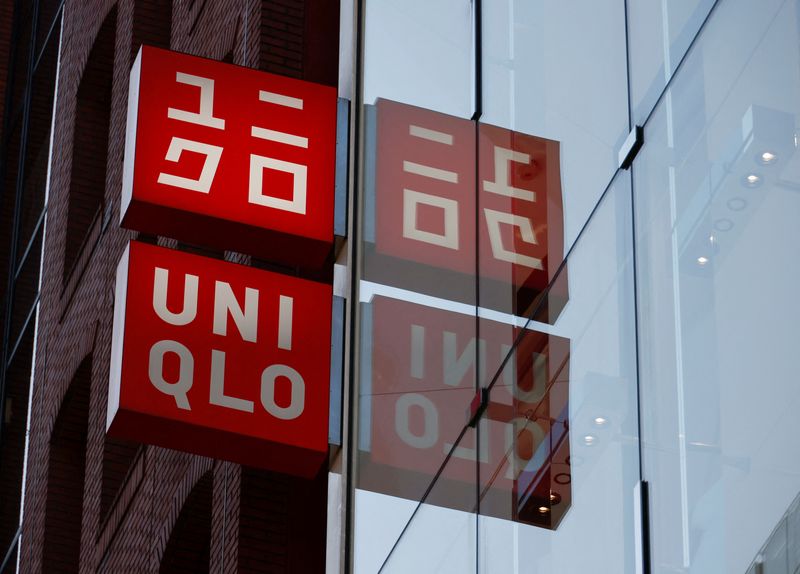By Eduardo Baptista and Casey Hall
BEIJING (Reuters) -Casual wear giant Uniqlo is facing a storm of online criticism in China after a BBC report quoted the chief executive of its owner as saying the company does not source cotton from the far western region of Xinjiang.
The British Broadcasting Corporation published an interview on Thursday with Tadashi Yanai, the chief executive of Fast Retailing, in which it asked him if the Japanese retailer sourced cotton from the region.
The report went viral on Chinese social media platform Weibo (NASDAQ:WB) on Friday, with several users slamming the company and some saying they would stop buying its products.
"With this kind of attitude from Uniqlo, and their founder being so arrogant, they're probably betting that mainland consumers will forget about it in a few days and continue to buy," one user wrote. "So, can we stand firm this time?"
In the interview, Yanai initally responds to the BBC's question saying, "We're not using," before interrupting himself to say he did not want to continue his answer as it was "too political".
Fast Retailing did not immediately respond to a request for comment.
The issue of sourcing from Xinjiang, where rights groups and the U.S. government accuse China of abuses against the Uyghur population, has been a geopolitical minefield for foreign firms with a large presence in China.
Beijing denies any abuses in the region, the origin of the vast majority of Chinese-produced cotton.
In 2021, Uniqlo’s rival, H&M (ST:HMb), faced a consumer boycott in China for a statement on its website that expressed concern about accusations of forced labour in Xinjiang and said it would no longer source cotton from there.
H&M saw its stores removed from major e-commerce platforms and its store locations moved from map apps in China as it bore the brunt of consumer anger at companies refusing to source cotton from Xinjiang.
Other Western brands such as Nike (NYSE:NKE), Puma (OTC:PMMAF), Burberry (LON:BRBY), Adidas (OTC:ADDYY) and more were also caught up in the controversy.
In September, China's commerce ministry launched an investigation into PVH (NYSE:PVH), the parent company of Calvin Klein and Tommy Hilfiger.
In a statement it said PVH was suspected of "unjustly boycotting" Xinjiang cotton and other products "without factual basis".
PVH has said it will respond in accordance with relevant regulations, media reported.
In 2020, Fast Retailing said it did not make any products in Xinjiang. However, Yanai has refrained in recent years from discussing the subject in other media interviews, saying Uniqlo wanted to stay neutral.
China is Fast Retailing's biggest overseas market and it has more than 900 stores on the mainland. Greater China, including Taiwan and Hong Kong, accounts for more than a fifth of its revenue.
Ben Cavender, managing director at Shanghai-based China Market Research Group said Uniqlo's sales had held up well during the current weakness in its economy.
But that Chinese consumers would vote with their wallets if they felt a brand was being disrespectful to their country or culture, he added.

"It's too soon to tell if there will be lasting damage but losing even a small number of consumers over this will not be helpful, given how challenging things are for the apparel industry right now."
Asked about Yanai's reported comments at a press briefing on Friday, Chinese foreign ministry spokesperson Mao Ning said she hoped "companies can eliminate political pressure and bad interference and independently make business decisions in line with their own interests".